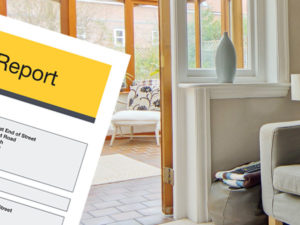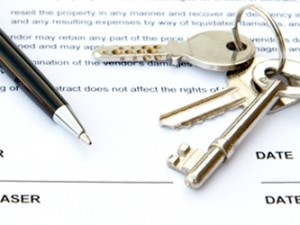
The property market can be overwhelming, filled with jargon and complicated processes guaranteed to befuddle first-time buyers and seasoned veterans alike. Our detailed Property Buying Guide aims to demystify the industry to give you the tools to confidently find and purchase your next dream home (and even save some money, too).
In the final instalment of our Property Buying Guide, we’ll discuss everything that comes once your offer on a home has been accepted. We’ll cover the key stages you should know, from finalising your mortgage application to concluding the missives, conveyancing and confirming an entry date – right up until you finally get the keys in your hands. Let’s dive in.
So, My Offer Has Been Accepted. What Comes Next?
Congratulations! All your hard work paid off, and you’re one step closer to securing your dream home – but it’s not time to relax just yet. The end may be in sight, but you’ll soon begin the legal process of transferring ownership of the property from the seller to you (officially known as ‘conveyancing’). So, once your offer has been accepted, what comes next?
Time to Take the Property Off the Market
Estate agents will often de-list a property once an offer is accepted, but it’s worth checking yourself to confirm it’s not still on the market and, if so, requesting it be removed as soon as possible. This will ensure that other buyers won’t attempt to out-bid you and present the seller with a higher offer to secure the home for themselves (also known as gazumping).
Does Gazumping Happen in Scotland?
Gazumping is common in England, but thankfully, it’s not as popular in Scotland. This is because most property sales are done through solicitor estate agents, bound to a strict set of guidelines set out by the Law Society of Scotland, who strive to prevent the risk of gazumping north of the border. These rules dictate that once an offer has been formally accepted, the vendor’s solicitor is barred from receiving another.
However, that doesn’t mean gazumping in Scotland is impossible. If a seller is determined to take another offer, they will have to source a new solicitor, which will delay the entire process, cost them more in the long run and potentially endanger the profit they’ll receive for their property, meaning there’s far less incentive for the seller to gazump in Scotland. Great news for buyers, but still – there’s no harm in ensuring your soon-to-be new home isn’t on the market once your offer has been accepted.
Finalise Your Mortgage
Once your offer for a property has been accepted, you’ll need to finalise your mortgage if that’s how you plan to finance the purchase.
Mortgage in Principle
While you can’t make a full mortgage application until your offer has been formally accepted, you can get a ‘mortgage in principle’ (also known as an agreement in principle) from a lender, which effectively details how much they will lend you so you know your budget while house-hunting. Lenders provide this information in the hope that you’ll choose them once you’ve found a property you’d like to buy.
Since this information can be crucial when searching for properties, it’s recommended to get a mortgage in principle before you begin looking for homes. Obtaining one is also a lengthy process, requiring you to provide evidence of your income, spending habits, identity and current address. So, if you can get this out of the way before you’ve found a property you like, it will save you a great deal of time once your offer has been accepted and conveyancing begins.
Full Mortgage Application
Once your offer has been accepted, it’s time to apply for your mortgage. If you have a mortgage in principle from a lender, you’ll already have covered a lot of the essential information needed in the application, meaning you should be able to obtain your mortgage faster. If not, now’s the time to reach out to lenders.
Your lender will undergo a full credit check to review your credit history and ensure you’ve reliably paid off your debts in the past. They’ll also run an affordability check to guarantee you can make the monthly mortgage payments and may seek references from your bank or employer.
The loan amount your lender offers will be subject to the property valuation contained within the Home Report, as well as a valuation they arrange and conduct themselves to ensure they are satisfied with how much the home is worth. This will affect how much they are willing to lend you.
If the mortgage amount your lender is willing to lend you is less than your offer, you’ll need to make up the remainder yourself or see if the seller is willing to renegotiate. Speak to your solicitor for the best way to move forward in this situation.
The Conveyancing Process
Once the missives have been sent (formal letters to negotiate the terms of the sale between you and the seller, known as ‘Concluding the Missives’) and you have an official contract with the vendor, your solicitor will begin the ‘conveyancing’. This is the legal process of transferring home ownership from the seller to you.
Your solicitor will review the property’s title deeds to clarify:
- That the seller officially owns the property and has the legal right to sell it
- That there are no unusual conditions in the deeds that could affect the sale
- That there are no burdens that could affect the way you live there (e.g. legal limitations on what renovations you can make)
- If there are any obligations to allow someone to use the land or that stop you from making full use of it yourself
- That the existing mortgage on the property will be fully paid off once ownership transfers to you
The Final Step: Settlement
The last step in buying a home in Scotland is the ‘settlement’ stage. This is when the property will officially be yours and typically happens on the agreed date of entry.
At this point, your solicitor will confirm that the home is in your name and transfer the funds to pay for the purchase to the seller’s solicitor. Once this has cleared, your solicitor will receive the ‘disposition’, which includes the document that confirms your ownership, the title deeds and the keys. If you have a mortgage, the title deeds are typically given to your lender for security. If you’re paying for the property yourself, you can request your solicitor to hold on to the deeds for safekeeping.
As part of the sale, you’ll also need to officially register your new ownership with the Land Register of Scotland. We recommend doing this through your solicitor to avoid any mishaps.
And that’s it – congratulations! You officially own your new home.
Thinking of Selling Your Property?
If you’re considering selling your property, our team of seasoned experts is here to assist you in achieving the best possible price in the shortest amount of time. With decades of experience under our belt, we’ve weathered all market conditions and are perfectly positioned to guide you through the current property landscape. So, why wait? Contact us today, and let us help you make the most of your property sale.
Fill in our free online home valuation form here
Call us on 0345 646 0208 (Option 1)
or email [email protected] to organise a free valuation of your home or to get a full, transparent breakdown of the costs of selling your home.
Thinking of Buying?
Our specialist Purchasing Team helps thousands of buyers each year secure their dream homes at the best possible price. We understand that the journey to homeownership can be both exciting and daunting – that’s why our friendly and expert lawyers are here to provide unwavering support, guiding you from the very start of your home-buying process until you finally hold the keys in your hand.
Get a quote for buying online here
Call us on 0345 646 0208 (Option 2)
or email [email protected], and we’ll be delighted to help.















